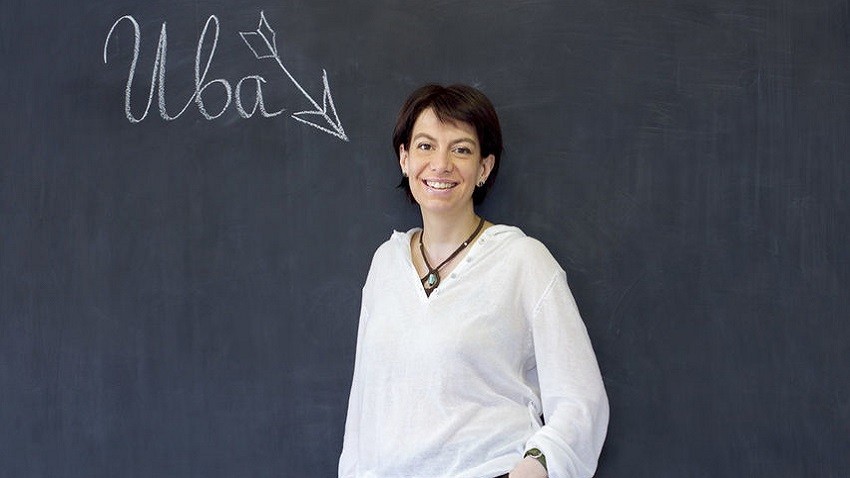Often around education-related dates, such as September 15 (the start of the school year in Bulgaria) and May 24 (the national Day of Education, Literacy and Culture), we take stock that we owe a lot to our teachers and what we have learned over the years at school. Unfortunately, many children in Bulgaria do not have a chance to get to school, and others drop out of the educational process too early. The reasons that take children away from the education system are usually poverty, misunderstanding and illiteracy in the family.
The number of children who do not go to school because they have been left in the care of a relative while their parents are abroad is also growing. These children are called the "new orphans" and also need support. But in school, the teaching staff is often insufficient in number in order to deal with both the teaching process and also the social problems of children. Institutions that are called upon to help a child in need do not always work in cooperation. Children do not receive the necessary protection, but the door to a better future is opened to them by concerned people from non-governmental organizations.
Among them, the active ones with ideas on how to keep the interest of many children in school are the volunteers in the Association for Shared Learning ELA. Its director Iva Boneva has been working for 20 years in support of children from different settlements, ethnic groups, children with disabilities, and more recently with those whose parents are far away:

"A lot has changed for the better over the years. We used to have a lot of kids in auxiliary schools before, and their place wasn't there. But things are not what I would like them to be. Child protection has been talked about frequently, and inclusive education is now compulsory by law, although many teachers are still unprepared for this. It is sad when in our meetings we often hear children say that there is no future for them. And many of them do not even know what professions exist and are completely unfocused on what they would like to do as adults. They do not know people who are actually engaged in any activity in their community. This lack of experience and information practically closes all doors to the child. Therefore, we want to show them that there are different specialists, with skills, professions, that the world is colourful and everyone can learn and do something that they will love and are interested in. For many children, this is a novelty, a real discovery about life”.
During their travels around the country, the volunteers of the ELA Association for Shared Learning found that there is a big gap between the schools in the small towns and villages, which are the majority, and the so-called “elite” educational centres. It turns out that in many places the educational function is in the background, and in the first place is the social one. "The children there have a lot of problems - family, household, and teachers do everything in their power to keep them in school," says Iva Boneva:
"One of the things the crisis has taught us is to be less biased and more interested in the world of others. It has taught us patience. Now we are working to make a Children's Green Education Centre. We have a building, it is from an old school, not far from Sofia. It will be a base for green camps, workshops, meetings and trainings. Otherwise, we have held many summer children's camps, but everywhere the resorts and hotels are not suitable for children and have nothing to do with environmental education. After a camp with children from very poor families this summer, there were children leaving their hometown for the first time. Some saw apartment blocks for the first time, others realized for the first time that there could be breakfast, lunch and dinner every day. This fascinates them. Some children heard for the first time that there was a sea, that there were children from other places who wanted to communicate with them. All this must be learned in school, because it broadens a child’s horizons and gives a person hope for development and future”.
English Rositsa Petkova
The festive service for the consecration of the new Bulgarian Orthodox church in London is led by His Holiness Daniil , Patriarch of Bulgaria, who also officiated at the Ressurection Vespers on Saturday. Hundreds of lay people-official guests and..
The Martenitsa Festival was held in Brussels f or the third consecutive year . Cultural organizations from Bulgaria, Romania and Moldova presented their country's traditions related to the "Baba Marta" holiday, which heralds spring. The initiative..
Measurement equipment installed at the Bulgarian Antarctic base "St. Kliment Ohridski" has been collecting valuable data on solar activity and its relation to the Earth's magnetic field for two months. The research is part of Bulgaria's first polar..
Prayer served by His Holiness Bulgarian Patriarch Daniil on February 22, marks the beginning of the celebrations for the consecration of..
The festive service for the consecration of the new Bulgarian Orthodox church in London is led by His Holiness Daniil , Patriarch of Bulgaria, who also..
In the era of increased digitalization and the penetration of artificial intelligence into all spheres of our lives, the professions of people with high..

+359 2 9336 661
